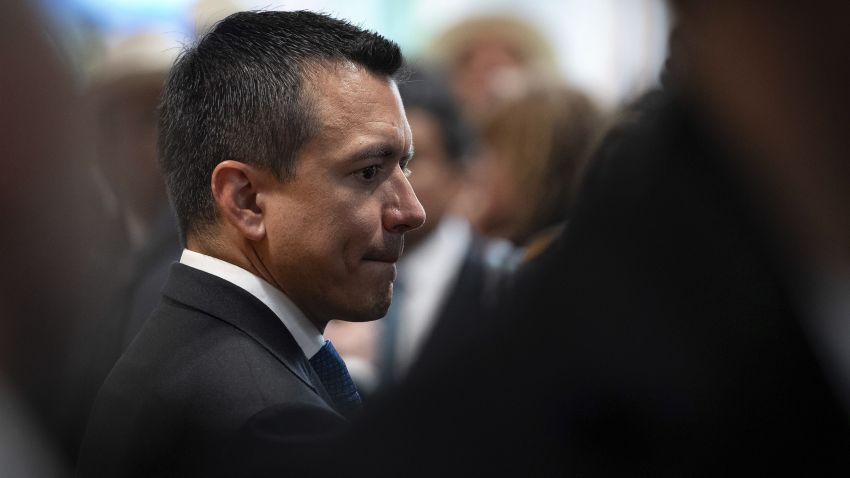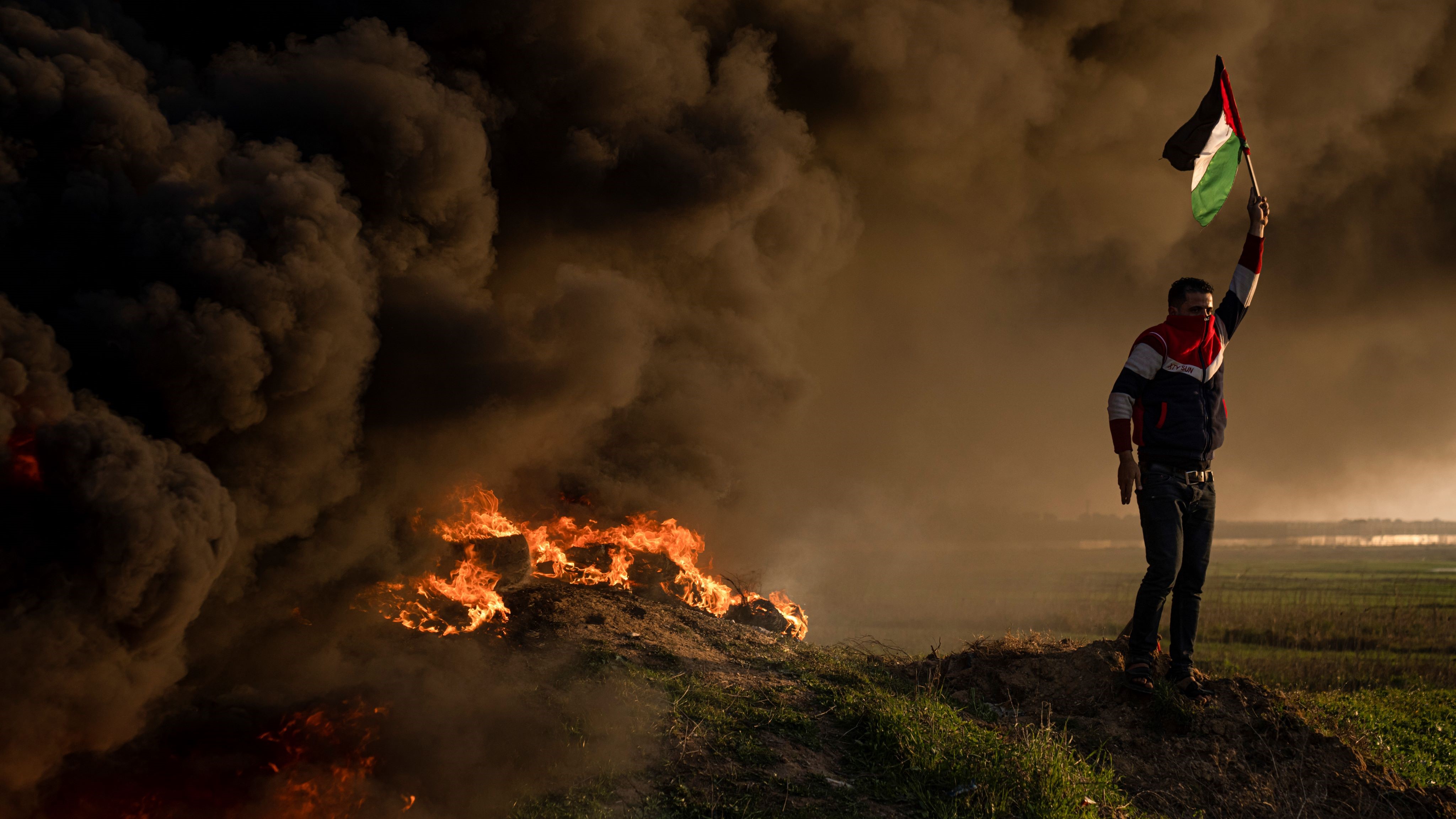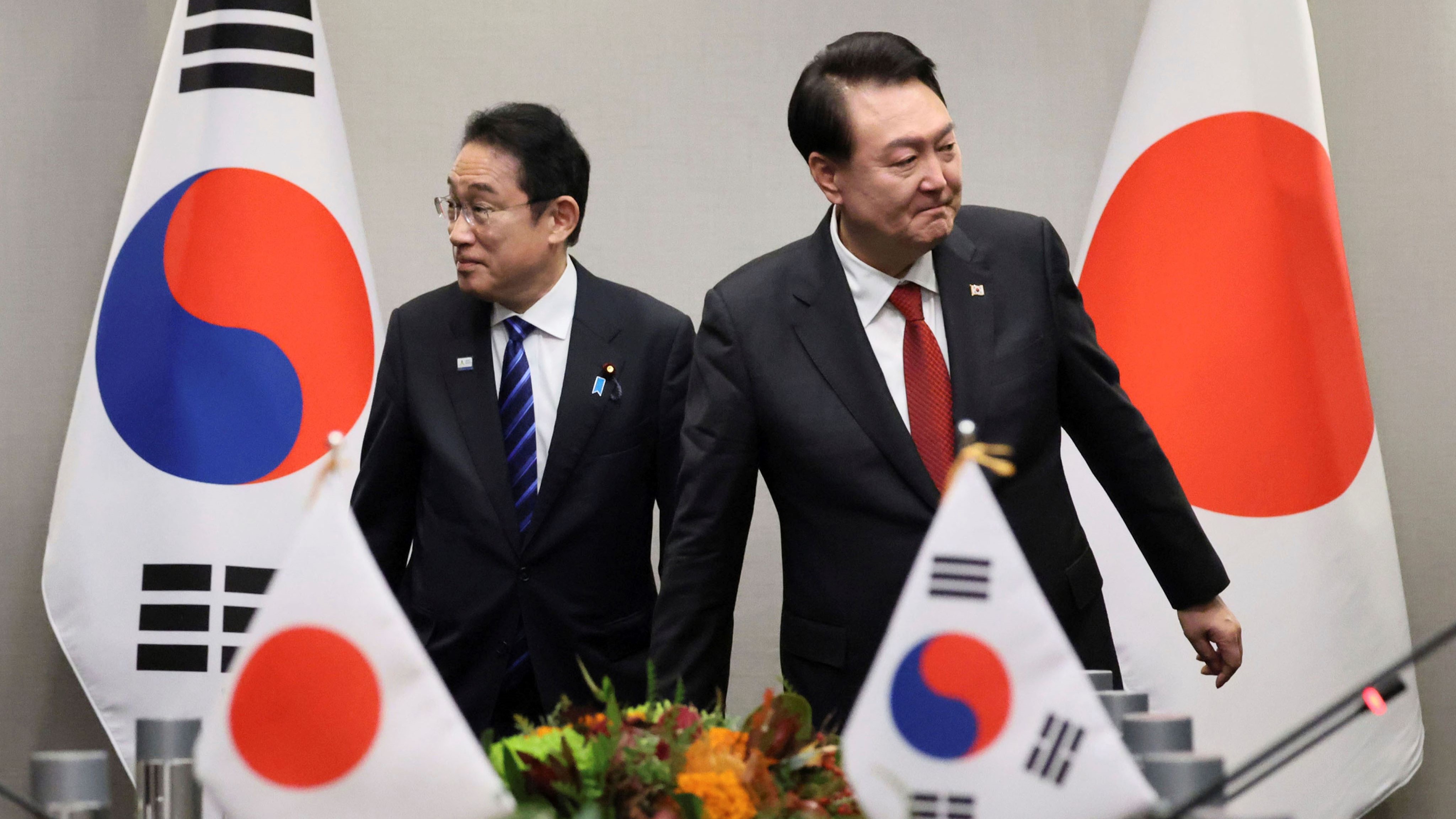Today’s Top Story
In a nationwide referendum Sunday, Ecuadorians voted overwhelmingly to approve nine measures giving President Daniel Noboa more tools to crack down on criminal gangs that have fueled violence across the country in recent years. The security-related measures included authorizing the use of the military in domestic law enforcement, stiffer sentences for drug-related crimes and tighter gun control near prisons. Voters rejected two other measures related to controversial economic reforms. (Associated Press)
Our Take
The referendum results are a clear win for Noboa on the central plank of his presidency so far, which is to find a way out of Ecuador’s spiraling security crisis. The referendum comes three months after he declared a “state of internal armed conflict” and deployed the military in the fight against the country’s gangs, moves that won him high approval ratings.
The fact that he presented a clear referendum to Ecuador’s voters indicates that he has learned from the mistakes of his predecessor, former President Guillermo Lasso. As the security crisis worsened in early 2023, Lasso also held a referendum, but it included a number of measures seemingly designed to bolster his political power rather than being strictly focused on security-related policies. Ultimately, Lasso resigned after being ensnared in a scandal related to his possession of offshore bank accounts and unproven allegations that he used those accounts to avoid paying taxes. His resignation triggered the snap presidential election that Noboa won last year.
Noboa has now wisely taken care that his security crackdown maintains democratic legitimacy and is inscribed in Ecuadorian law. But his other recent steps show worse judgement—particularly the ill-advised April 5 police raid of the Mexican Embassy in Quito to arrest former Ecuadorian Vice President Jorge Glas, who had taken refuge in the embassy to avoid accountability for his two corruption convictions. While Noboa presented that raid as another example of his “tough on crime” posture, the raid’s violation of Vienna Convention protections for embassies and diplomats triggered almost universal condemnation from governments in the region and beyond.
That backlash will make it harder to enlist a regional response to Ecuador’s security crisis, which will be necessary to tackle the transnational dynamics involved. Torpedoing ties with Mexico was particularly short-sighted given that some of the foreign gangs contributing to Ecuador’s security crisis originate from Mexico. Because Noboa is serving out the rest of Lasso’s term, which ends in mid-2025, he will face voters sooner rather than later, so he will no doubt run on the success of this referendum and the security measures it authorizes. But he still has some very challenging economic and energy issues to deal with, including a regional drought that has decimated the hydropower production on which Ecuador relies heavily for its electricity. In attempting to build on the political momentum created by this referendum victory, Noboa would do well to avoid some of the excesses of Salvadoran President Nayib Bukele in addressing that country’s security challenges. If he does, Noboa will have offered the region an alternative model for achieving results without turning democratic freedoms into a casualty of his war on gangs.
On Our Radar
Palestinians in the West Bank went on a general strike Sunday to protest an Israeli military raid on a refugee camp the day before, during which 10 Palestinians were killed. The raid is just the latest episode in an ongoing Israeli crackdown in the West Bank since Hamas’ attack on Israel in October 2023.
As Hugh Lovatt wrote earlier this month, while international attention is focused on the war in Gaza, the West Bank continues to be engulfed by violence. In the past six months, more than 400 Palestinians, including more than 100 children, have been killed by Israeli forces and settlers in the West Bank, putting heightened pressure on the dysfunctional Palestinian political leadership to respond.
The Palestinian Political System is Headed Toward Crisis
April 5, 2024 | The Palestinian Authority’s crisis of legitimacy exacerbated by the war in Gaza, the Palestinian political system is headed toward crisis. Read more.
The South Korean government expressed “deep disappointment” with the decision of Japanese Prime Minister Kishida Fumio and some members of his Cabinet to send offerings to Tokyo’s Yasukuni Shrine, which is dedicated to Japanese soldiers who have died in the country’s wars but includes the remains of 14 Japanese leaders who were convicted of World War II-era war crimes. Many Koreans believe the shrine glorifies Japan’s imperialist past, including the colonization of the Korean Peninsula.
South Korean President Yoon Suk Yeol has made it a priority to improve relations with Japan since taking office in 2022, and the two countries, along with the United States, signed the Camp David Principles in August 2023 to institutionalize their trilateral cooperation on defense and economic issues. However, as Paul Nadeau wrote in February, the success of those agreements, and of closer ties going forward, will depend to a large degree on how the two countries manage their historical disputes.
Japan and South Korea’s ‘Historical Dispute’ Is Still Very Much Alive
Feb. 14, 2024 | Historical issues dating back to colonization and World War II are preventing deeper cooperation between Japan and South Korea. Read more.
The U.S. House of Representative approved a $60 billion military aid package to Ukraine over the weekend. The measure is expected to be passed by the Senate and become law this week. The passage of the assistance package has Ukraine breathing a sigh of relief. But the funding impasse, and the increasing unpredictability of U.S. support for Ukraine it illustrated, has given new urgency to calls in Europe to provide for Ukraine’s security on its own—including by sending troops.
Demonstrations were held across Colombia on Sunday in opposition to Colombian President Gustavo Petro’s social reform agenda. It’s only the latest in a string of political setbacks for Petro, who since coming to office in August 2022 has had plenty of big ideas, but has struggled to effectively implement them.
More from WPR
- Paul Poast on the United States’ crisis of confidence.
- Christopher Ògúnmọ́dẹdé on Mali’s military junta.
- John Boyce on the EU’s new migration pact.
- Frida Ghitis on Georgia’s EU accession battle.



